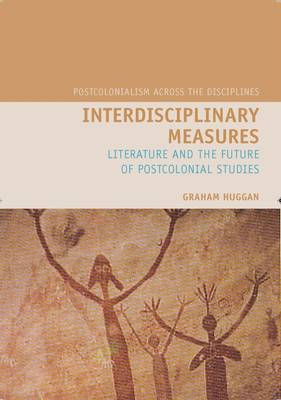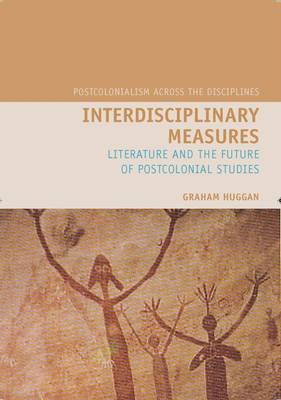
Door een staking bij bpost kan je online bestelling op dit moment iets langer onderweg zijn dan voorzien. Dringend iets nodig? Onze winkels ontvangen jou met open armen!
- Afhalen na 1 uur in een winkel met voorraad
- Gratis thuislevering in België vanaf € 30
- Ruim aanbod met 7 miljoen producten
Door een staking bij bpost kan je online bestelling op dit moment iets langer onderweg zijn dan voorzien. Dringend iets nodig? Onze winkels ontvangen jou met open armen!
- Afhalen na 1 uur in een winkel met voorraad
- Gratis thuislevering in België vanaf € 30
- Ruim aanbod met 7 miljoen producten
Zoeken
€ 111,95
+ 223 punten
Omschrijving
Interdisciplinary Measures makes the case for a cross-disciplinary, but literature-centred, approach to postcolonial studies. Despite the anxieties that interdisciplinarity brings with it, a combination of different, discontinuously structured disciplinary knowledges is arguably best suited to address the tangled concerns of both the globalised present and the colonial past. The book looks specifically at the intersections between literary criticism, history, anthropology, geography and environmental studies, while arguing more specifically for a postcolonialism across the disciplines in the service of informed (cross-) cultural critique. Bringing together a wide range of literary material from Africa, Australia, Canada, the Caribbean, New Zealand and South Asia, the book also considers the different, but sometimes related, cultural contexts within which the key debates in postcolonial studies - e.g. those around globalisation, North-South relations and the new imperialism - are currently taking place. These debates suggest the need for a multi-sited, multilinguistic and, not least, multidisciplinary appraoch to postcolonial studies that consolidates its status as a comparative field.
Specificaties
Betrokkenen
- Auteur(s):
- Uitgeverij:
Inhoud
- Aantal bladzijden:
- 256
- Taal:
- Engels
- Reeks:
- Reeksnummer:
- nr. 1
Eigenschappen
- Productcode (EAN):
- 9781846311093
- Verschijningsdatum:
- 1/02/2008
- Uitvoering:
- Hardcover
- Formaat:
- Ongenaaid / garenloos gebonden
- Afmetingen:
- 164 mm x 240 mm
- Gewicht:
- 485 g

Alleen bij Standaard Boekhandel
+ 223 punten op je klantenkaart van Standaard Boekhandel
Beoordelingen
We publiceren alleen reviews die voldoen aan de voorwaarden voor reviews. Bekijk onze voorwaarden voor reviews.











